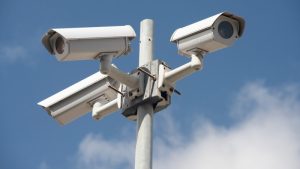The Miami-Dade County Police Department is spending at least $2.6 million to deploy ShotSpotter, a technology that detects the sound of gunshots through sensors, after an unsuccessful pilot trial in 2013.
Boston’s Office of Emergency Management upgraded the city’s emergency notification system, AlertBoston, based on citizen feedback.
It wouldn’t be very hard for a hacker to access U.S. election systems, according to a recent report by the Institute for Critical Infrastructure Technology, titled “Hacking Elections is Easy.” “Every four years, during the presidential election, the same stories re-emerge acknowledging that the e-voting systems are vulnerable to the same old attacks, without any change in the security or oversight of the systems,” James Scott and Drew Spaniel write in the report.
Despite hacks against the Democratic National Committee, the Democratic Congressional Campaign Committee, and the Arizona and Illinois voter databases, many state and industry officials feel confident in the security of elections systems in the upcoming election.
Federal information sharing is key to combating terrorism and cyber threats, according to law enforcement representatives from several states.
A new tool called the Electronic Recovery and Access to Data Prepaid Card Reader allows police officers to check the balance of cards, including credit and debit cards, gift cards, hotel key cards, library cards, and Metro cards. The device will be useful because criminals rarely travel with stacks of paper money anymore.
The Federal Aviation Administration will replace existing air traffic control procedures in Southern California with new satellite-based procedures as part of its Next Generation Air Transportation System.
With the implementation of a robust Geographic Information Services (GIS) to provide mapping and analysis services, the city continues to further “smart city” and IoT initiatives across the nation.
Jon Froehlich at the University of Maryland is working with a team of graduate students on Project Sidewalk, an online tool through which users can view their Washington, D.C., neighborhoods with Google Street View and label areas that may be inaccessible to those with impaired mobility.
The Baton Rouge Department of Information Services on Aug. 19 created an interactive map to track damage as the Louisiana city dealt with disastrous flooding. Within hours, 10,000 people, including rescue teams, had used the map.













